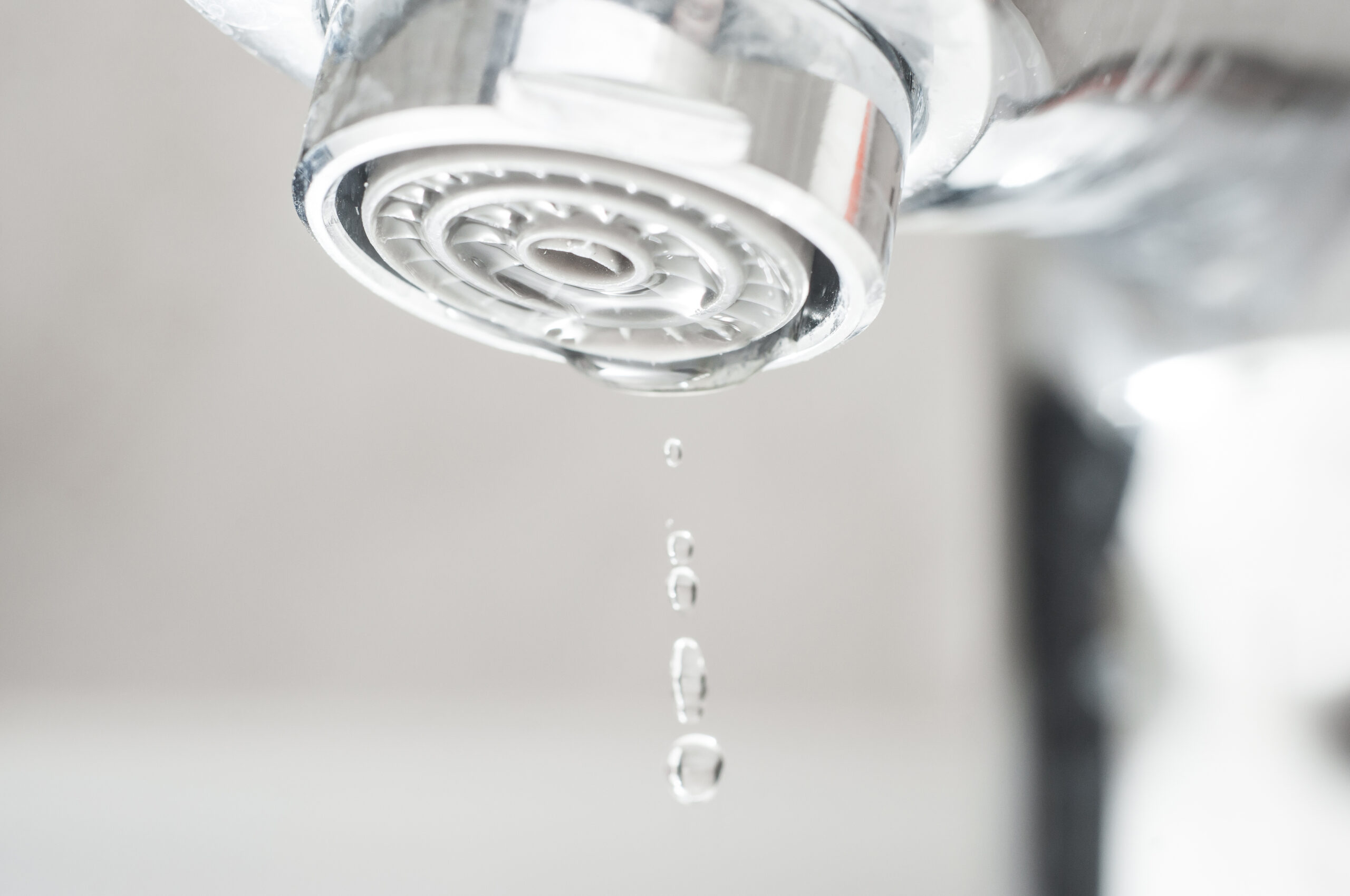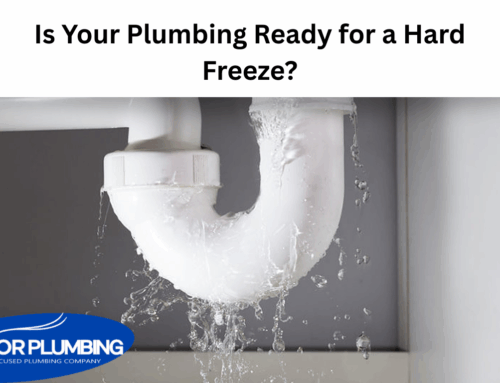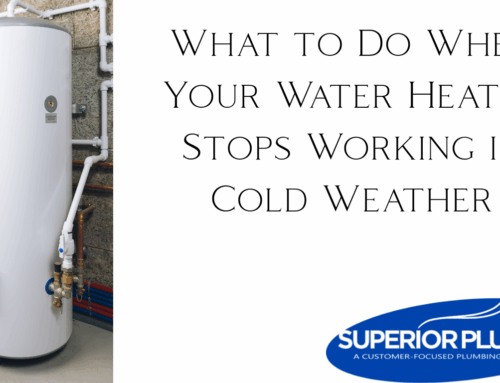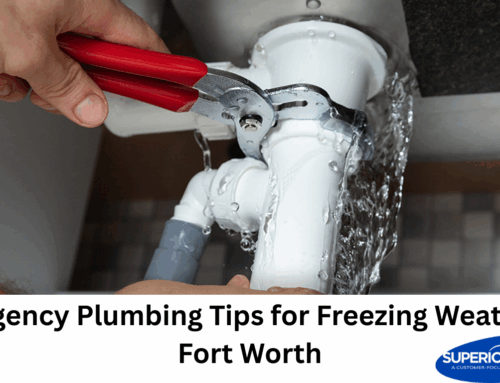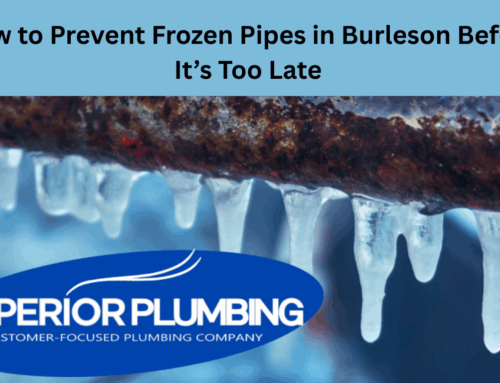Frozen pipes can cause major issues for homeowners, especially when temperatures plummet. Knowing tips for keeping your pipes from freezing in the winter can save you from costly repairs, water damage, and the inconvenience of losing access to running water. At Superior Plumbing, we’re dedicated to helping homeowners in Burleson, TX, prevent winter plumbing issues with practical solutions. Here are effective steps you can take to protect your pipes and keep your plumbing safe through the cold months.
Insulate Exposed Pipes to Retain Heat
One of the most important tips for keeping your pipes from freezing in the winter is to insulate any exposed pipes. Pipes located in areas like basements, attics, garages, and crawl spaces are often more vulnerable to freezing temperatures. Insulating these pipes with foam pipe sleeves, heat tape, or rubber insulation can help retain heat and keep water flowing freely.
When insulating pipes, pay close attention to joints and bends, as these areas are more susceptible to cold air exposure. For additional protection, you can also wrap outdoor faucets with insulated covers to prevent freezing. Taking this simple step can help safeguard your pipes against the cold.

Keep Your Thermostat Consistent
A common mistake that leads to frozen pipes is turning down the thermostat too low at night or when away from home. Keeping your thermostat set to a consistent temperature throughout the day and night can help maintain the warmth needed to prevent pipe freezing. Experts recommend keeping the thermostat at a minimum of 55°F, even if you’re away, to ensure your home’s pipes remain warm enough to avoid freezing.
For maximum protection, especially during extreme cold, you may want to set your thermostat a few degrees higher than usual. This extra warmth can make a big difference in maintaining the temperature around your pipes.
Let Faucets Drip to Relieve Pressure
Allowing your faucets to drip slightly is another simple but effective tip for preventing frozen pipes. When temperatures drop, leaving a faucet slightly open allows a small stream of water to flow through the pipes. This trick relieves pressure within the pipes, reducing the risk of a freeze-induced burst.
Faucets connected to exterior walls or uninsulated spaces should be prioritized. You only need a slow drip to make a difference, and it’s particularly helpful for protecting pipes overnight when temperatures are lowest.
Open Cabinet Doors to Circulate Warm Air
If you have kitchen or bathroom sinks located on exterior walls, opening cabinet doors beneath the sinks can help keep the pipes warm. Opening cabinet doors allows warm air from your home to circulate around the pipes, reducing the risk of freezing. For even better results, consider placing a small space heater nearby to maintain warmth, but use caution and never leave heaters unattended.
This tip is especially useful during cold snaps when temperatures suddenly drop. It may seem simple, but allowing warm air to circulate around vulnerable pipes is an effective preventative measure.
Disconnect and Drain Outdoor Hoses
One of the best ways to keep your pipes from freezing is to disconnect and drain all outdoor hoses before winter arrives. Leaving hoses connected to outdoor faucets can trap water in the line, which can freeze and cause pressure to build up in your pipes, leading to cracks or bursts.
After disconnecting hoses, turn off the water supply to outdoor faucets if possible, and drain any remaining water from the pipes. This extra step will protect both the faucet and connected plumbing from freezing temperatures.
Seal Cracks and Openings Near Pipes
Cold air can enter your home through small cracks and openings, making pipes more vulnerable to freezing. Inspect areas around windows, doors, and exterior walls where pipes are located, and use caulk or weatherstripping to seal any gaps. In basements or crawl spaces, check for any unsealed openings and close them off as needed.
By sealing up drafts and cold air leaks, you’re not only helping keep your pipes from freezing but also improving your home’s overall energy efficiency.
Use Heat Cables on High-Risk Pipes
For pipes that are particularly prone to freezing, such as those in uninsulated areas or along exterior walls, heat cables or heat tape can be a reliable solution. Heat cables provide a controlled source of heat directly to the pipe, helping to maintain a consistent temperature even in very cold conditions. They’re relatively easy to install and come with built-in thermostats that activate when temperatures drop to freezing levels.
If you’re unsure which type of heat cable to use or how to install it, Superior Plumbing can assist with installation to ensure safe, effective protection for your pipes.
Winterize Your Home Before Extreme Cold Sets In
Winterizing your plumbing system in advance is one of the most important tips for keeping your pipes from freezing in the winter. Preparing for freezing weather ahead of time includes insulating pipes, disconnecting outdoor hoses, sealing drafts, and draining any unused water lines. Winterizing early allows you to address any potential issues and ensures your home is ready when temperatures fall.
Superior Plumbing offers winterization services to help you prepare your home’s plumbing system for cold weather. Our experts can assess your setup and provide solutions to keep your pipes safe through the winter months.
When to Call Superior Plumbing for Winter Pipe Protection
While these tips can go a long way in preventing frozen pipes, there are situations where professional help is needed. If you’re unsure about how to insulate pipes, install heat cables, or effectively winterize your plumbing system, calling a professional can save you from potential headaches and costly repairs. Superior Plumbing specializes in winter pipe protection and is ready to help Burleson homeowners prepare for cold weather.
Contact Superior Plumbing today for expert winterization and plumbing services. Let us help you protect your pipes from freezing and ensure your home stays safe and warm all winter long!

